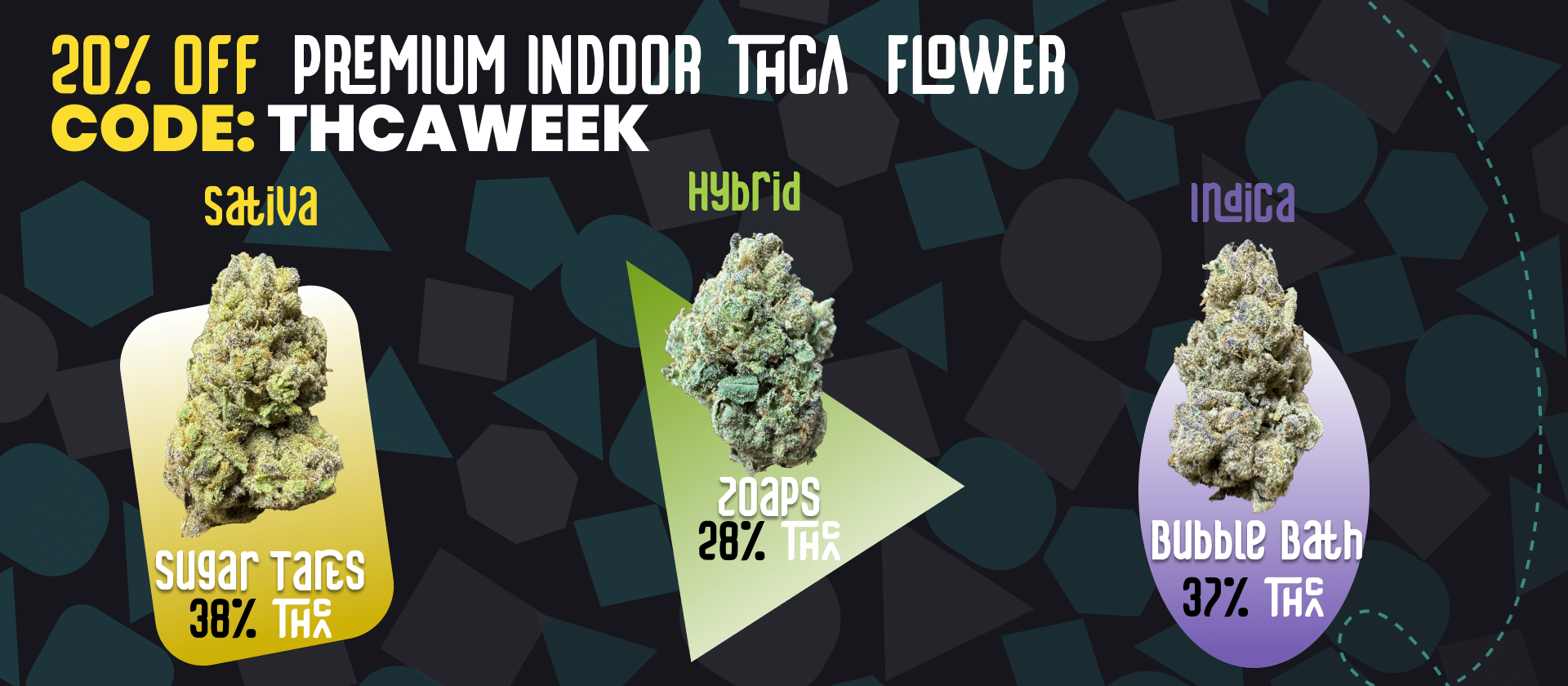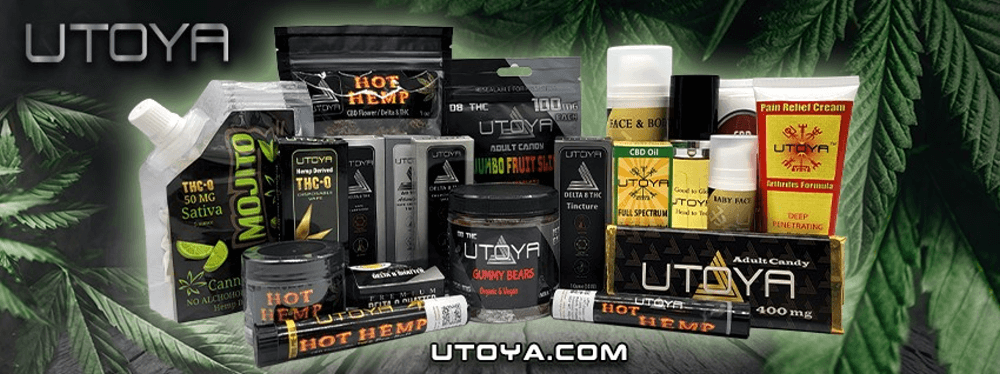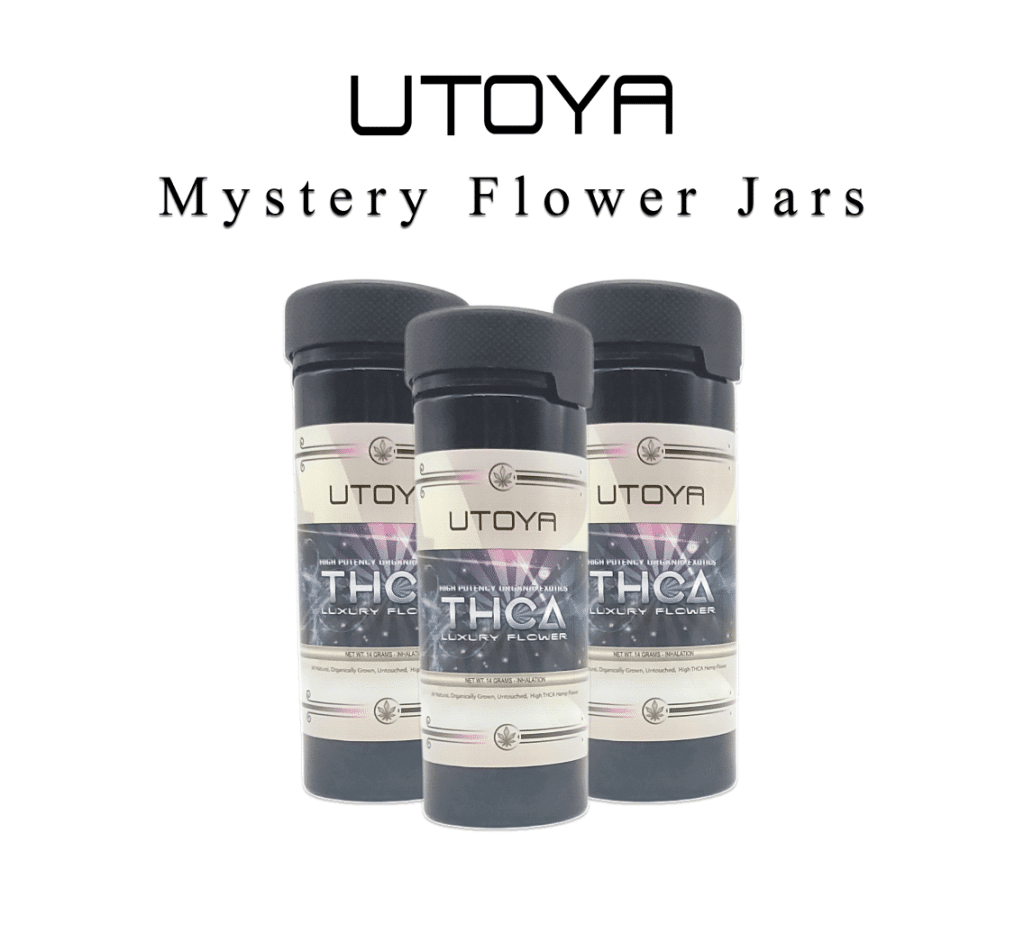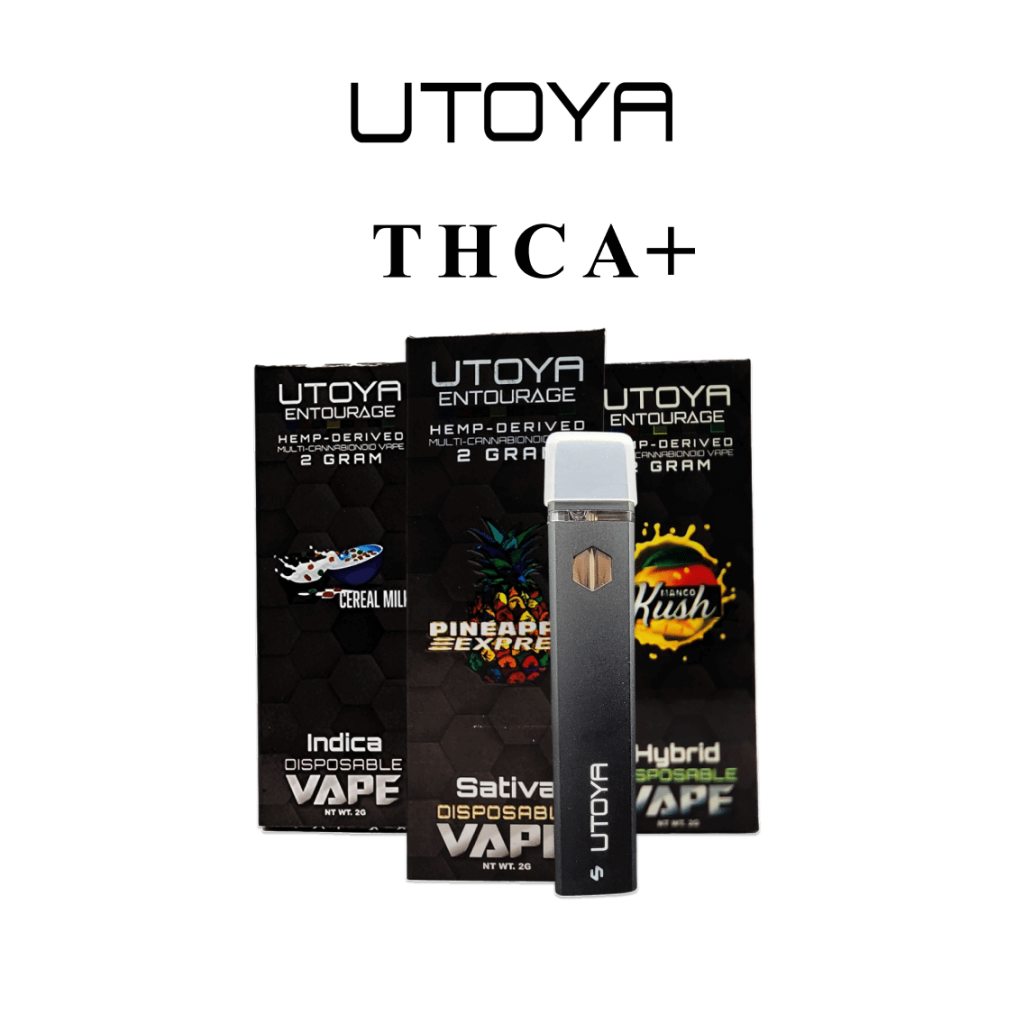THCA vs THC: Which Is Stronger?
Tetrahydrocannabinolic acid (THCa) is a naturally occurring cannabinoid in the hemp plant. It is not psychoactive and will not make you high. THCa has many therapeutic potentials, but it is rarely consumed. It converts into THC through a decarboxylation process. All cannabis and hemp flowers are really THCa flowers, but THCa is converted to THC just before it’s inhaled. THCa is essential for THC to exist.
THCa is not just a precursor to THC; it has many benefits and effects. In this article, we will go over these benefits and provide a breakdown of which is stonger THCA vs THC.
What Is THCa?
Tetrahydrocannabinolic acid (THCa) is one of the 100-plus naturally occurring cannabinoids found in the cannabis and hemp plant. THCa is the chemical precursor of delta 9 THC. All THC is a converted form of THCa.
Unlike THC (and isomers like delta 8-THC and HHC), THCa will not produce a high. It produces a mild mental effect.
What Is THC?
Delta-9-tetrahydrocannabinol (THC) is one of the 100-plus cannabinoids naturally found in the cannabis and hemp plant. THC, which is dominant in cannabis strains, is known for producing a head high. It can also be found in hemp, the federally-legal version of cannabis.
THC is not only used for its high but also for therapeutic purposes. Most research focuses on medical cannabis as a whole, but THC plays a key role.
THCa and THC: The Differences
THCa differs from THC in three main ways: its origin, its strength and effects, and its side effects.
Origin in Hemp
The main difference between THCa and THC is where they are derived from. THCa is not found in living hemp plants. THCa must be heated to decarboxylate, which removes its acid ring.
To understand this better, you should also be familiar with another cannabinoid called cannabigerolic acid (CBGa). CBGa is a cannabinoid that all cannabinoids derive from and can be found in young hemp plants.
As the hemp plant matures, most of the CBGa initially present is transformed into THCa, CBDa, CBCa, and CBG. THC cannot be found in living plants. THC is produced when THCa undergoes decarboxylation.
Strength
THCa is a much less stronger form of THC. It can be viewed as an “inactive” version of THC. THCa doesn’t have the same psychoactive effects as THC.
THC produces a high that is marked by feelings of euphoria and relaxation. It can also cause heightened sensory perception and altered perceptions of time. THCa has very little noticeable effect. You won’t “feel” it when you use it as an edible product or in any other form. It’s possible that some people may feel a slight sense of energy or even drowsiness, but these effects may not be consistent.
THCa has other benefits for mental and physical health, which are discussed in the section “Benefits of THCa.”
Side Effects
THCa and THC can both be consumed without harm, and some research indicates that they could have therapeutic benefits. However, they may also cause adverse effects.
The side effects of THCa are not well researched. Anecdotal evidence indicates that THCa can make some people feel tired or drowsy, while others feel energized.
THC can have the following side effects:
- Anxiety
- Dry mouth
- Memory loss
- Difficulty thinking and speaking
- Red eyes
- Delayed response time
- Increased heart rate
- Increased appetite
THCa has far fewer negative effects than THC. Most of these side effects can be avoided or reduced by using the correct THC dose.
Conversion of THCa to THC
THC, the cannabinoid that causes the head high feeling when using cannabis (whether it’s hemp or marijuana), is well-known. Live cannabis plants do not contain THC. Instead, they contain tetrahydrocannabinolic acid (THCa), which comes from CBGa that breaks down as the plant grows.
THCa is then converted into THC by a process known as decarboxylation. THCa, which loses its acid group during decarboxylation (as does CBDa, which becomes CBD), is converted to THC.
Decarboxylation occurs to a minor extent during cannabis storage, but it mainly happens when the plant is heated. This is how prerolls, vapes, dab rigs, and other methods of inhaling THC work. THCa becomes THC when heated.
For products like gummies or drinks that do not involve heating, THCa will be decarboxylated before being added. However, you can skip this step to keep THCa in its original form, allowing you to consume it raw in gummies and tinctures.
What Is a Good THCa?
Some dispensaries categorize flower strains based on their THCa levels, not their THC levels. Since THCa is converted to THC by burning, the THCa levels are the same as the THC levels, minus a few percentages for conversion.
High-quality, potent flower usually contains between 15-25% THC. Look for strains that have similar THCa levels. Ask the budtender or the company if you are buying online how to understand and read the potency levels of the different strains.
THCa vs. THC: Legality
All hemp-derived cannabinoids are now legal in the United States. Hemp is cannabis that contains 0.3% or less THC by weight. THC is illegal in certain states. The legality of THCa isn’t clear. However, if THC is illegal, THCa will likely be as well (and vice-versa if THC is legal).
Here are the states that allow THC and the states that do not.
States Where Hemp-Derived THC Is Legal
- Alabama
- Alaska
- Arizona
- Arkansas
- Connecticut
- Delaware
- Florida
- Georgia
- Hawaii
- Illinois
- Indiana
- Iowa
- Kansas
- Louisiana
- Maine
- Maryland
- Massachusetts
- Michigan
- Minnesota
- Missouri
- Montana
- Nebraska
- Nevada
- New Hampshire
- New Jersey
- New Mexico
- New York
- North Carolina
- Ohio
- Oklahoma
- Oregon
- Rhode Island
- South Carolina
- South Dakota
- Tennessee
- Texas
- Utah
- Virginia
- Washington
- West Virginia
- Wisconsin
- Wyoming
States Where Hemp-Derived Thca Is Illegal or Restricted
- California
- Idaho
- North Dakota
- Mississippi
- Colorado
- Kentucky
- Pennsylvania
- Vermont
THCa and THC in Drug Tests
Drug tests will detect both THCa and THC. THC is often screened due to its presence in marijuana, which is illegal in most states. THCa is used to test for THC.
We recommend that you avoid THCa or THC products when you are about to take a drug test. Consider using a Broad Spectrum product or CBD isolate product instead.
Conclusion - Is THCa Worth a Try?
Now you know which is stronger and difference between THCa and THC. THCa offers unique benefits, including potential therapeutic effects without the psychoactive high. Discover the unique benefits of THCa products at Utoya Organics and experience the difference for yourself!
Explore our range of high-quality THCa products and find out how they can enhance your well-being.





